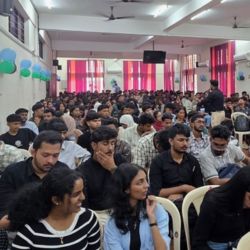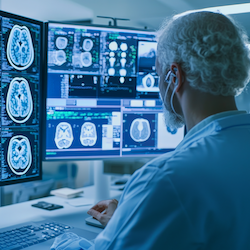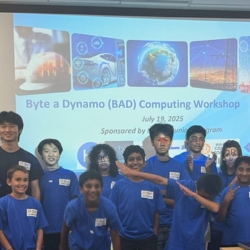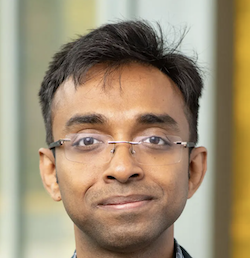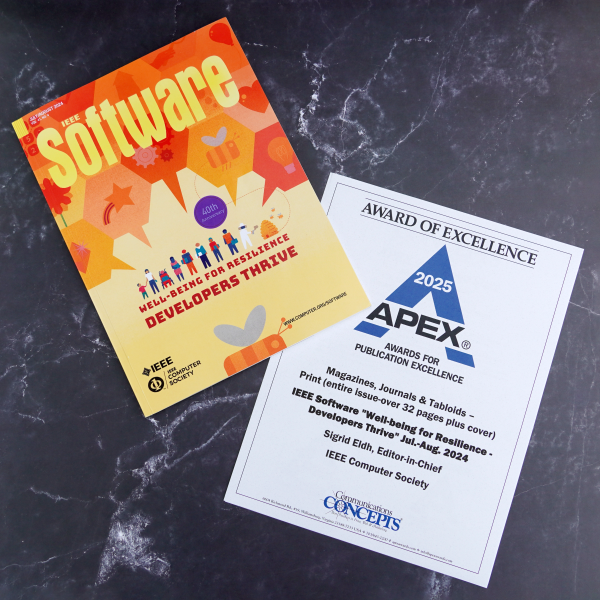A team of experts foresee 22 breakthrough technologies set to redefine industries and shape the future of our world for decades to come.
Support your K-12 programs that spark interest in computing and STEM fields. Proposals are accepted on a rolling basis. Submit a proposal today.
Since the 1980s, IEEE Intelligent Systems has been bridging the gap between theories and practices in artificial intelligence.
Explore how a Master’s in Data Science can prepare you for one of the fastest-growing careers of the decade. Read on.
Search upcoming IEEE conferences in Asia, Europe, and North America.
Have you been looking for a way to make your mark in computing? Look no further than these calls. We want contributions from computing professionals who have interest and expertise from the many disciplines within the computing community!
High-level summaries of the latest developments and discoveries in computing. Download reports, guides, predictions, and tips.
By Eric Arnold
Quantum computing is often discussed in terms of its potential to revolutionize scientific discovery and to challenge cryptographic paradigms [1], but it could also change our relationship with money. By using quantum states, quantum currency could solve the double-spending problem and address throughput issues associated with distributed ledgers (blockchain), paving…
LOS ALAMITOS, Calif., 17 September 2025 – The IEEE Computer Society (IEEE-CS), known for producing trusted content in computer science and engineering, seeks applicants for the position of editor in chief (EIC) for several of its leading publications. EIC terms begin on 1 January 2027 and are for two years,…
By IEEE Computer Society Team
The IEEE Student Branch of Mohandas College of Engineering and Technology (MCET) brought the tech community together with HackEthix 2025. The July 19, 2025, event at the MCET campus in Trivandrum was Kerala’s largest one-day cybersecurity workshop championed by the Computer Society Chapter Grant Initiative. It’s a crucial first step…
By Andy Johnson
Introduction Learning Metadata Terms (LMT) is a standard that connects metadata terms in practice with the purpose of solving many use cases common to e-learning. While there are other metadata standards, they have been inadequate for keeping up with machine-readable data requirements, which modern AI needs to achieve significance. While…
By Laxman Sayaji Khandagale
The use of artificial intelligence (AI) and computer vision in the healthcare industry continues to progress along a steep upward trajectory. Advanced AI technologies enable machines to interpret and analyze medical images, videos, and other data with unprecedented speed and accuracy. Computer vision combines that functionality with deep learning networks…
By Vignyanand Penumatcha
A significant roadblock organizations face when taking advantage of artificial intelligence (AI) and machine learning (ML) is a legacy database. ITP.net reports that nearly 90 percent of businesses are hindered by legacy technologies, and approximately 62 billion data and analytics work hours are lost annually due to their inefficiencies. Organizations…
By IEEE Computer Society Team
Software engineering shouldn’t be gatekept to people who can afford an expensive degree. Recently, one group has been working hard to expand artificial intelligence (AI) and computer science teaching to students (ages 10-16) from low-income families in Maryland who have no or minimal computing backgrounds. Computing isn’t just for the…
By IEEE Computer Society Team
LOS ALAMITOS, Calif., 11 September 2025 – Today, the IEEE Computer Society (CS) announced the recipients of its 2025-2026 Emerging Technology (Tech) Grants. Established to help connect emerging technologies with the computing community and support members and constituents in using emerging technologies to benefit humanity, this year’s Emerging Tech Grant…
By IEEE Computer Society Team
When he’s not developing hardware-efficient computer vision solutions for extended reality (XR) or creating novel facial landmark detection algorithms for mobile devices, you might find Upal Mahbub writing poetry in Bengali, creating “zentangle” art, or editing Dorpon, the literary magazine he publishes. Or? You might check the list of Computing’s…
IEEE Software has won another Publication Excellence award from APEX, a leading annual competition for communication and publishers. The IEEE team is incredibly honored and excited to continue our mission of keeping IEEE members informed on major trends and developments in technology, engineering, and science. The distinguished 2025 APEX Awards…
By Dharani Pothula
In an era where data is often described as the “new oil,” its management transcends basic operational considerations and becomes integral to organizational trust and sustainability. Ethical data practices, including transparency and informed consent, have emerged as compliance requirements and strategic differentiators for business growth and customer retention. Data Ethics…
By Shrinivass AB
Key Takeaways SDUI Necessity: Server-Driven UI will become essential for high-agility scenarios demanding rapid UI evolution and backend control over frontend composition. GraphQL as Orchestrator: GraphQL’s declarative nature and flexible schema will be ideal for querying and orchestrating dynamic UI structures and properties. WebAssembly for Performance: WebAssembly will enable high-performance,…
By Dr. Jon Peddie
Nvidia launched the first GPU in 1999 with the GeForce 256, pioneering hardware T&L. In 2001, the GeForce 3 introduced programmable shaders, marking the shader era. Over 24 years, GPUs advanced massively, from 57 million transistors in NV20 to 92 billion in Blackwell (B100). Shader counts exploded—from 16 in 2007…
By IEEE Computer Society Team
To keep his edge, international cybersecurity expert Nipun Jaswal does more than stay up on current security threats and trends; he literally keeps his hands in the game, regularly coding—in up to 10 different languages—and doing lab work including exploring attack vectors and hunkering down with disassemblers and debuggers. Remaining…
By Michael Martin
https://www.computer.org/wp-admin/edit.php Digital twins, virtual models that simulate real-world city dynamics, are transforming urban transportation and mobility planning. These intelligent systems integrate real-time data, machine learning (ML) algorithms, and transportation research to optimize citywide solutions. By simulating traffic patterns, travel demand, and road dynamics, cities can make informed, equitable decisions that…
There are no results for this search.
Analysis, Blogs, Commentary
Featured Podcasts











